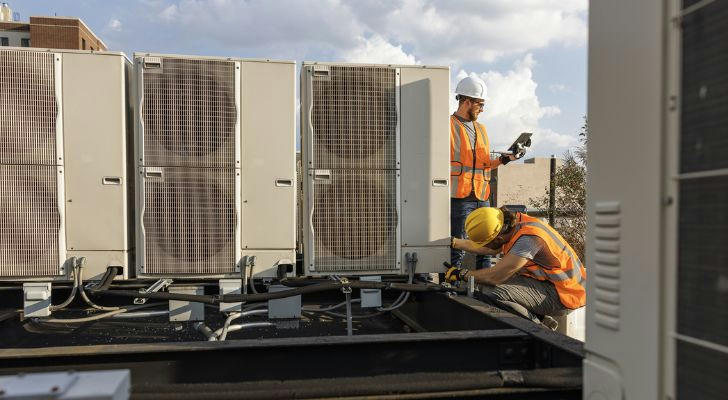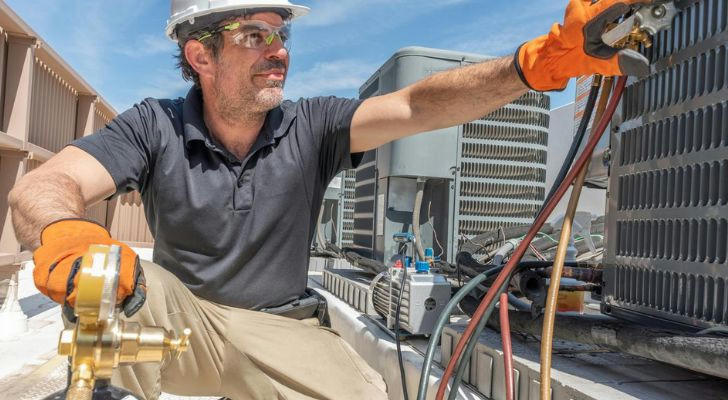Join the Trades: Why HVAC Installers Are in High Demand
The demand for skilled HVAC installers is rising fast—and it's not just because of hotter summers. From new home construction to energy-efficient system upgrades, HVAC (Heating, Ventilation, and Air Conditioning) professionals are needed more than ever. For those seeking a reliable, hands-on career with long-term growth, this trade offers stability, solid wages, and opportunities to advance.

Why the HVAC Industry Is Booming
Several factors have contributed to the surge in demand for HVAC installers:
- Aging Infrastructure: Many homes and buildings across the U.S. have outdated HVAC systems that need replacement.
- Climate Change: Rising temperatures are leading to increased installations of residential and commercial cooling systems.
- Energy Efficiency Programs: Governments are offering rebates and incentives to encourage homeowners to upgrade to more efficient systems.
- Skilled Trades Shortage: As older technicians retire, fewer young people are entering the trades—creating a labor gap.
According to the U.S. Bureau of Labor Statistics, employment for HVAC installers and mechanics is projected to grow 6% from 2022 to 2032, faster than the average for all occupations.
What Does an HVAC Installer Do?
HVAC installers handle the setup, repair, and maintenance of cooling systems. Typical tasks include:
- Reading blueprints and technical diagrams
- Installing air conditioning units, ducts, and thermostats
- Connecting electrical components and testing system functions
- Troubleshooting mechanical issues
- Ensuring compliance with building and safety codes
Installers work in homes, office buildings, schools, factories, and even hospitals. The job often requires travel to different job sites and can involve both indoor and outdoor work.
No Experience? You Can Still Get Started
You don’t need a college degree to become an HVAC installer. Many technicians begin through:
- Vocational Training Programs: Offered at trade schools and community colleges, these typically take 6 to 12 months and include hands-on learning.
- Apprenticeships: Earn while you learn. Apprenticeships combine classroom instruction with paid, on-the-job training—often lasting 3 to 5 years.
- Entry-Level Jobs: Some companies hire helpers or trainees and provide on-site instruction for basic tasks.
Many states require a certification or license, such as EPA Section 608 Certification, which is essential for handling refrigerants safely.
How Much Can You Earn?
HVAC installer salaries vary by location, experience, and certification level. On average:
- Entry-Level Installers: $35,000–$45,000 per year
- Experienced Technicians: $50,000–$70,000 per year
- Specialists (Commercial, High-Efficiency Systems): $75,000+ per year
In high-demand areas like Texas, Florida, and California, experienced HVAC installers can earn even more. Overtime pay and bonuses are also common, especially during summer months when service calls spike.
Career Growth and Advancement
Starting as an installer is just the beginning. With additional training and experience, you can move into roles such as:
- HVAC Technician – handling diagnostics and complex repairs
- HVAC Supervisor or Foreman – managing job sites and teams
- Estimator or Project Manager – planning and budgeting HVAC projects
- Business Owner – starting your own installation and repair company
Some technicians go on to specialize in smart home systems, green technology, or energy audits—areas that are expected to grow in the coming years.

Benefits Beyond the Paycheck
Choosing a skilled trade like HVAC installation also comes with other advantages:
- Job Security: HVAC systems are essential year-round, making this career less vulnerable to automation or outsourcing.
- Portable Skills: Technicians are needed across the country, so relocation is always an option.
- Low Student Debt: Compared to four-year college degrees, HVAC training is affordable and often employer-sponsored.
- Hands-On Work: For those who dislike desk jobs, working in the field offers variety and physical activity.
Many employers also provide healthcare benefits, retirement plans, paid vacation, and tool allowances to attract and retain talent.
Is This the Right Path for You?
Becoming an HVAC installer is a good fit if you:
- Enjoy solving practical problems
- Prefer working with your hands instead of sitting in an office
- Are comfortable using tools and reading technical diagrams
- Can handle heat, lifting, and occasional tight spaces
- Value long-term career growth and job stability
This role combines craftsmanship with purpose—keeping people comfortable, safe, and energy-efficient.
